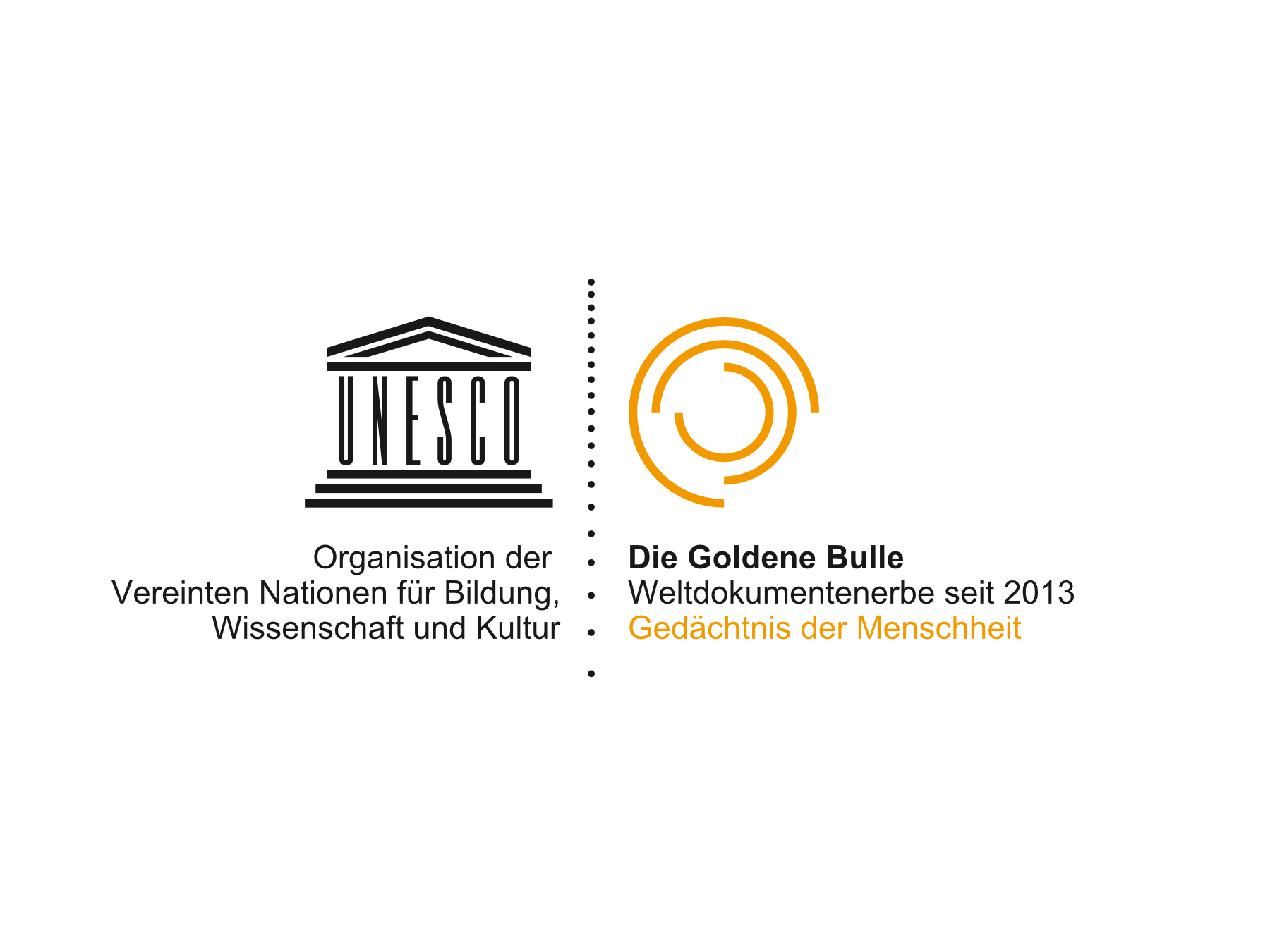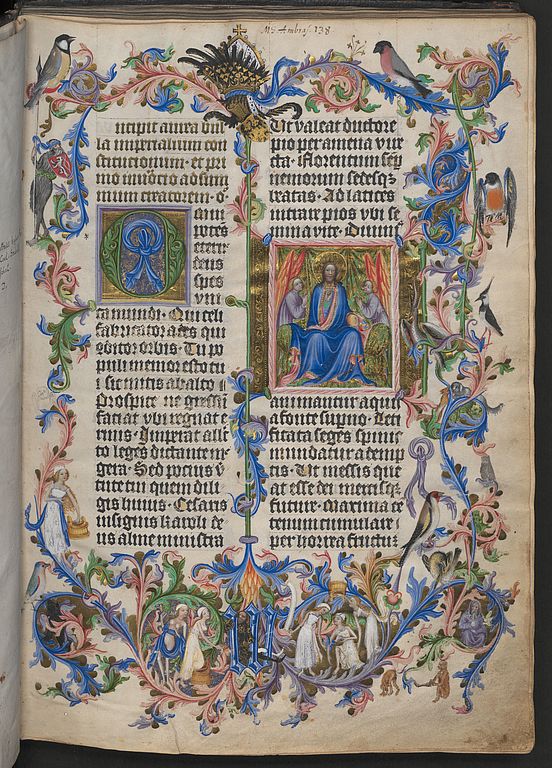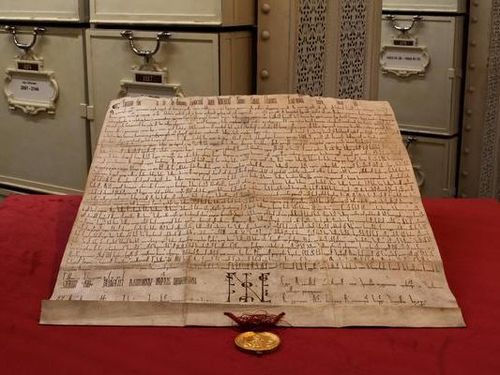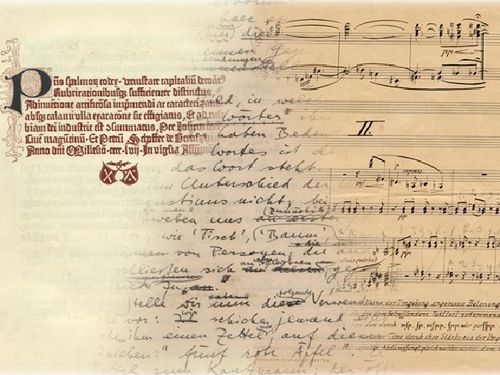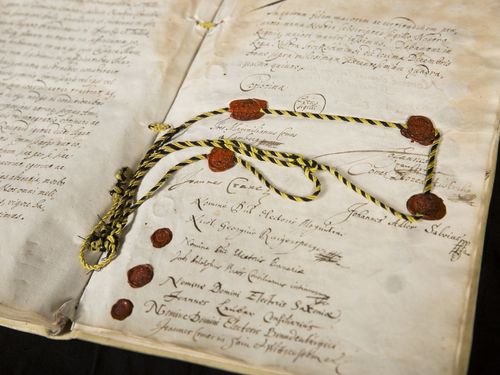The Golden Bull of Emperor Charles IV was the most important legal text in the Holy Roman Empire and contains the legal framework conditions for electing a Roman-German king and emperor.
At the time the Golden Bull was written, the Holy Roman Empire stretched across Central Europe and part of Southern Europe. The name comes from its golden seal (“bulla” in Latin) that was prevalent from the 15th century.
Emperor Charles IV created this document in 1356 in order to prevent the outbreak of wars when a new Roman-German king and emperor was being elected. It served to record the rules of behaviour, which largely already existed, in Latin. This included the election of the king, the rights of electors and the exclusion of the papal power of co-decision. Seven original copies were created for the seven electors, all of whom received one. As Austria was not yet an electorate at this point in time and the Habsburgs were therefore not taken into account, in 1359, Duke Rudolf IV, a Habsburg, had the Privilegium Maius written to equip the Habsburgs with claims to sovereignty.
Of the seven originals, the excellent copy of King Wenceslaus is stored in the Austrian National Library, two are kept in the Austrian State Archives and the others are preserved in German archives.
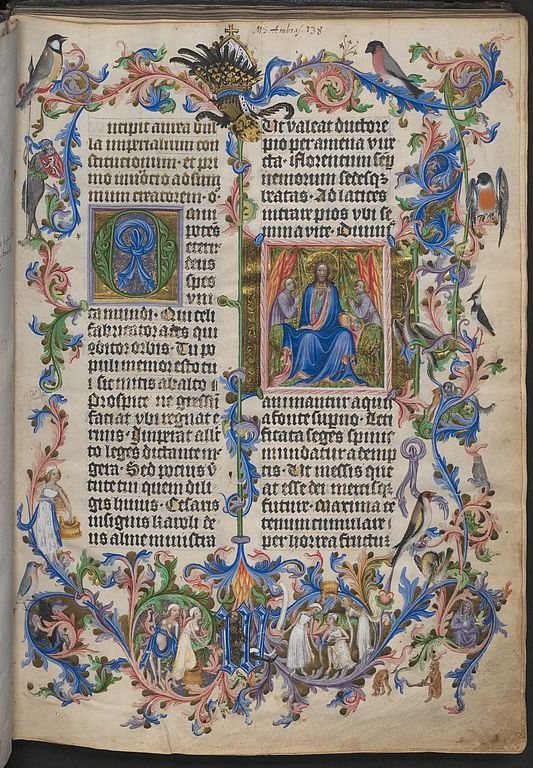
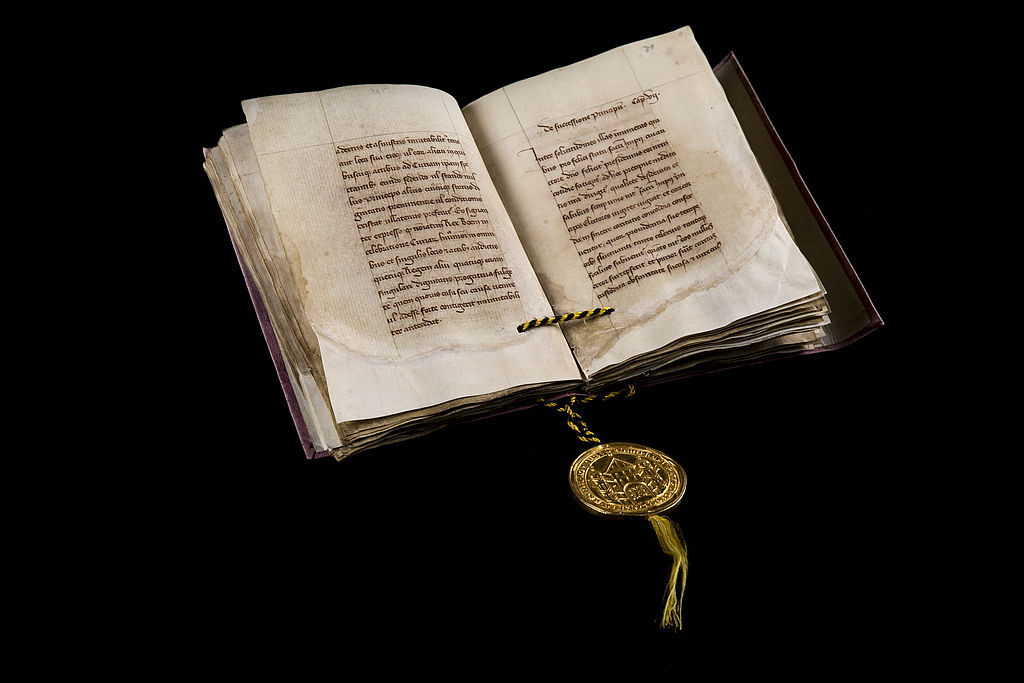
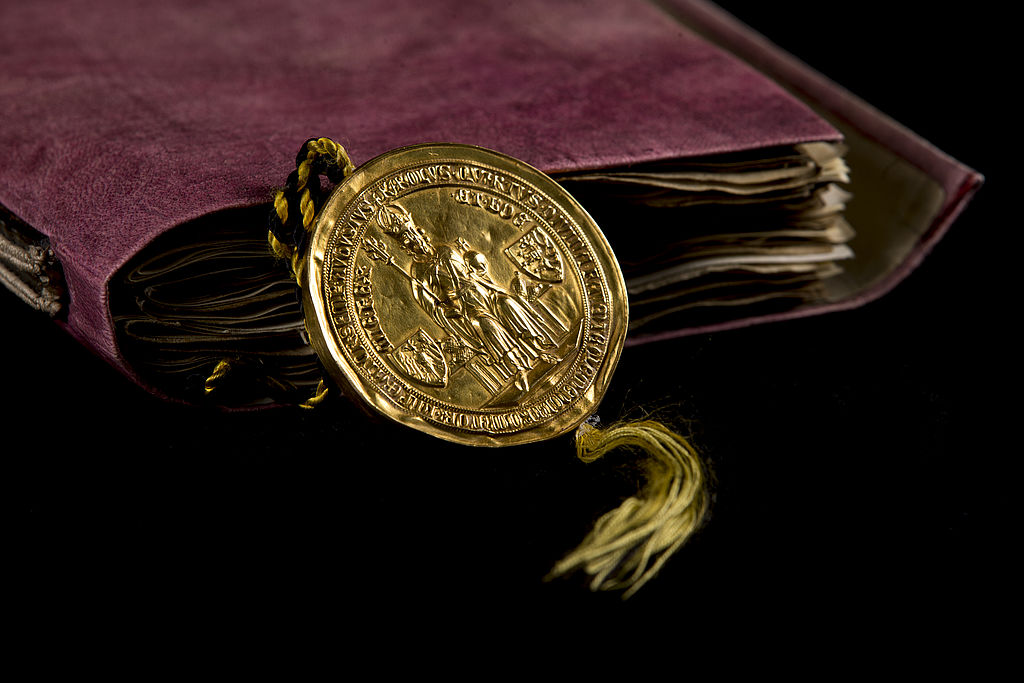
Global significance
The Golden Bull was crucial for stability within the multi-ethnic Holy Roman Empire. In addition to the Magna Carta (1215), the agreement between the English nobility and their king on their political rights, the Golden Bull is one of the most important documents in European legal history.
Further links
- The „Golden Bull“ – All seven originals and the „King Wenceslaus‘ luxury manuscript copy“ of the Österreichische Nationalbibliothek
- Datenbank des österreichischen Staatsarchivs
- Weltdokumentenerbe in der Österreichischen Nationalbibliothek
- Zum Weltdokumentenerberegister / Memory of the World-Register

